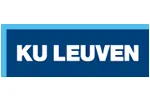We're moving! This site will be relocating to goingto.university in 2026. Please update your bookmarks to the new address.


| The award | How you will study | Study duration | Course start | Domestic course fees | International course fees |
|---|---|---|---|---|---|
| MSc | Full-time | 1 year | September | - | - |
Digital Humanities is a young field of research, focused on the use of computational techniques to support research in the Humanities, Social and Behavioral Sciences. One of the key drivers of the field is the recent availability of large digital repositories within many areas of the Humanities, Social and Behavioral Sciences. These repositories offer the prospect of applying computational visualization, querying and analysis techniques, leading to the discovery of new knowledge and insights. The field also applies new digital techniques to enhance approaches, processes, skills and methods developed and applied in the Humanities, Social and Behavioral Sciences. This includes the use of digital techniques in instructional sciences, the use of digital games in social sciences or the use of digital techniques in on-line publishing.
What is the Master of Digital Humanities all about?
The Master of Science in Digital Humanities helps graduates from Humanities, Social and Behavioral Sciences programmes to develop digital competencies that will allow them to add digital dimensions to their own domain expertise. It aims to explicitly link these competencies to research questions, case studies and applications related to the domain expertise of the students.
Graduates of this programme will be able to bring their own domain expertise to a significantly higher level of functionality, using digital tools and techniques. Building both on the expertise they obtained from the programme and their prior expertise in Humanities, Social or Behavioral Sciences, graduates will be well placed to open many new digital applications to a much wider community. Moreover, those who wish to move to a professional profile involving more advanced digital competencies, are well prepared to do so.
Structure
The programme is organized around a number of clusters of course units. The central clusters are the Application Domains cluster and the Tools for the Digital World cluster. Supporting clusters are the Introductory Digitization Components cluster, the Advanced Digitization Components cluster and the Management Component. The heart of the research activities is situated in the Master’s thesis.
International and multidisciplinary
The master’s programme is conceived as a one year, international and multidisciplinary advanced master programme (master-after-master). The programme is unique in Flanders and one of only a few in Europe. The programme is firmly framed in an explicit collaboration between the Faculty of Arts, the Faculty of Psychology and Educational Sciences, the Faculty of Social Sciences and the Faculty of Sciences - Department of Computer Science. As such, it is supported by experts in Digital Humanities applications, who supply research expertise for the programme, as well as by experts in digital techniques and tools, who provide a sound technical basis for the students.
KU Leuven Online Open Day
Discover KU Leuven and its wide range of degree programmes at our Online Open Day! For more information, head to www.kuleuven.be/onlineopendays
Below are some suggested courses at other providers that you may also be interested in:
Artificial Intelligence - Cognitive Science Track Master Degree
Vrije Universiteit Amsterdam
Find out moreErgonomics and Human Factors Postgraduate Certificate
University of Derby Online Learning
Find out moreAmerican Language Program English Language
Columbia University, School of Professional Studies
Find out moreIf you do not meet the entry requirements for this course then consider one of these postgraduate preparation courses from another institution:
Graduate Diploma of Engineering (Safety, Risk and Reliability)
Engineering Institute of Technology
Find out moreThere are 123 other courses listed from KU Leuven. A selection of these are displayed below:
Join the StudyLink email list and never miss a chance to turn your study abroad dreams into reality!
